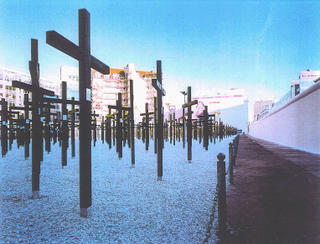For a healthy and vibrant society to grow, individual rights must be safeguarded. This includes the right to anonymity. But an individual’s rights must not exceed that of the community good and cannot transcend the law.
With regard to the Plame flame games, a law may have been violated, and trust in the government is questioned. The reporters must yield their anonymous sources.
For a healthy and vibrant society to grow, individual rights must be safeguarded. This includes the right to property. The community cannot trample on this right in the name of common good. There can be no common good when individuals are not secure of their possession.
With regard to the recent Kelo ruling by the Supreme Court, it was a travesty. This ruling needs to be revised.

